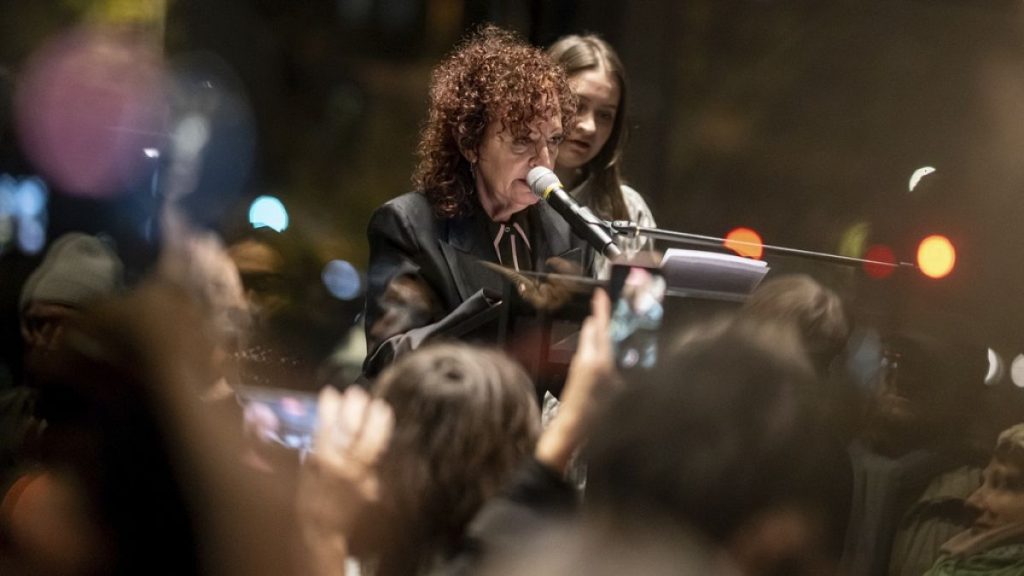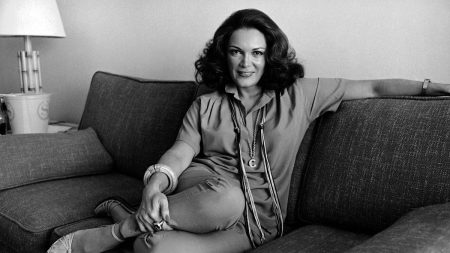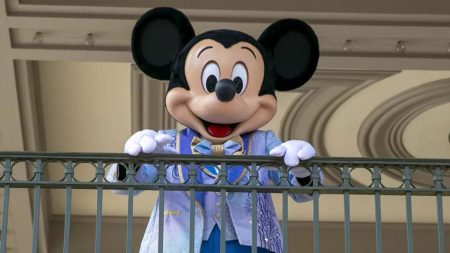At the opening of her exhibition “This Will Not End Well” at Berlin’s Neue Nationalgalerie, American photographer and activist Nan Goldin delivered a fiery speech condemning Israel’s actions in Gaza. The 71-year-old artist expressed her “moral outrage,” characterizing the situation as a form of genocide, which resonated with some attendees but drew criticism from German cultural figures. Her remarks coincided with the International Criminal Court’s issuance of arrest warrants for Israeli leaders accused of war crimes, heightening the significance of her comments. Goldin, leveraging her Jewish heritage and family history of escaping pogroms, invoked the past to illuminate her present-day concerns for Gaza, drawing parallels that stirred both support and dissent.
Goldin emphasized the necessity for a clear distinction between criticism of Israel and antisemitism. She warned against conflating these concepts, recognizing how untenable it was for critics of Israeli policies to face repercussions or ostracism, such as canceled exhibitions in Germany. Her speech posited that historical lessons of genocide prevention, encapsulated in the phrase “Never again,” applied not just to Jewish experiences of the Holocaust but to all victims of oppression. She admonished Germany for its handling of protests supporting Palestine, highlighting the dangerous juxtaposition between the country’s claims to honor human rights and its treatment of the Palestinian diaspora, often deemed unwarranted in conversations around these issues.
As Goldin concluded her address, the audience erupted in chants of “free, free Palestine,” effectively overshadowing the subsequent speech from Klaus Biesenbach, the director of the Neue Nationalgalerie. This demonstration of solidarity underscored the emotional intensity of the moment and introduced tension into the event, as cultural figures grappled with the implications of the discourse surrounding Israel-Palestine relations. Hermann Parzinger, president of the Prussian Cultural Heritage Foundation, publicly denounced both Goldin’s remarks and the audience’s disruption, questioning the alignment of such behavior with ideals of freedom of expression.
While Biesenbach expressed disagreement with Goldin’s views, he reaffirmed the importance of upholding her right to free speech. This interplay of respect for individual expression and the complexities of the dialogue surrounding Israel and Palestine reflects the broader societal tensions present in contemporary conversations about art, politics, and cultural responsibility. German Culture Minister Claudia Roth characterized Goldin’s opinions as “unbearably one-sided,” signaling a fissure in how her comments were received and interpreted within cultural institutions.
Goldin’s retrospective exhibition serves as a crucial exploration of her artistic journey, illustrating her commitment to activism through her work. The integration of slideshows and films, accompanied by music, allows for a multidimensional experience that weighs heavily on the themes she presented in her speech. Born in Washington D.C., Goldin’s notable acclaim is evident not only in her photography but also in her cinematic portrayal in the award-winning 2022 film “All the Beauty and the Bloodshed,” which chronicles her life’s work amid activism and artistic exploration.
The contrast between Goldin’s heartfelt appeal and the pushback from German cultural leaders encapsulates a broader conversation about art and social justice. The eruption of chants and the critique of artistic dialogue may reflect the shifting landscape of cultural discourse, prompting questions regarding collective accountability in the face of global conflicts. Goldin’s message serves as a poignant reminder that history’s lessons on humanity’s moral obligations remain essential, urging audiences to reflect on their roles in advocating for justice for all marginalized communities.














